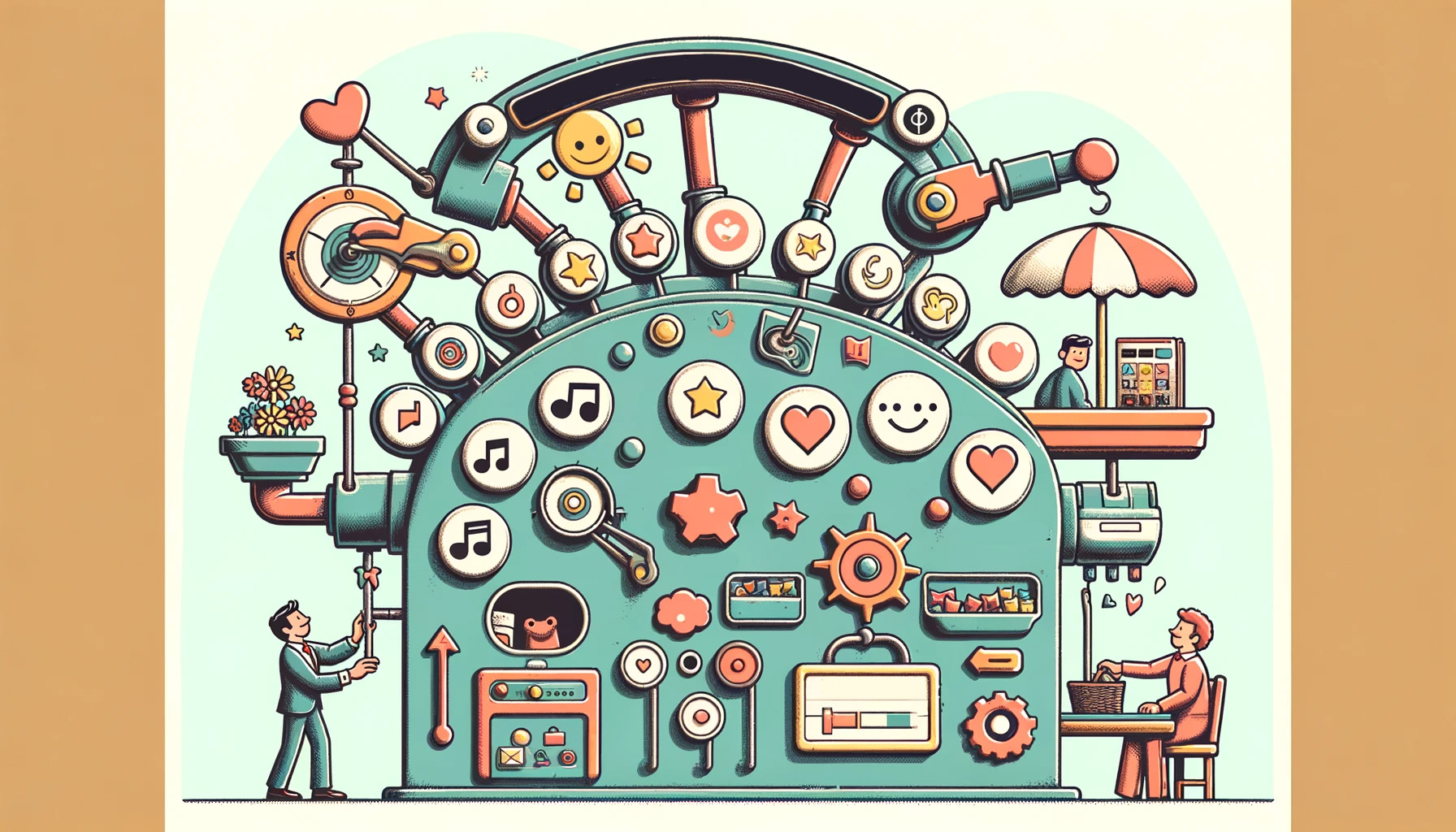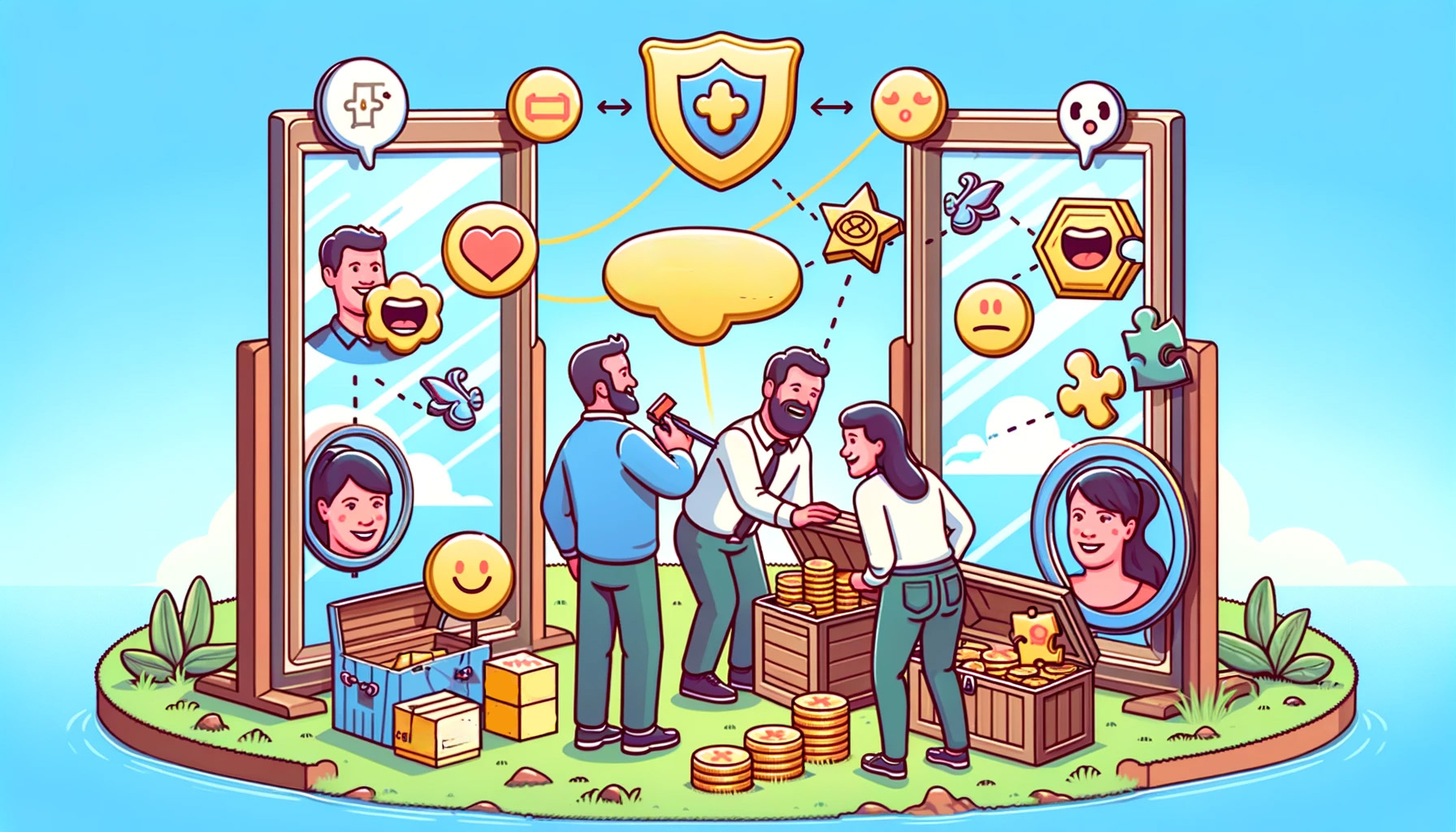Today’s marketplace demands not only attention to the immediate needs of the customer but also a deep dive into the entire lifecycle of customer interaction. From the initial touchpoint to post-purchase engagement, every moment holds the potential to deepen loyalty, encourage referrals, and significantly impact your bottom line.
Join us and our guest Jason Fieldman, CEO of CXFormula, for incredible insight into what it takes to perfect the customer journey and build a valuable business.
The Bedrock of Customer Experience and Value
The value of an exceptional customer experience serves as the foundation upon which successful businesses are built, fostering not only immediate sales but long-term loyalty and advocacy. Understanding and implementing strategies that elevate the customer experience is essential for marketers aiming to stand out in a crowded marketplace.
Creating Valuable Customer Experiences
At the heart of valuable customer experiences lies the ability to connect with customers on a personal level. This connection is not just about solving a problem or fulfilling a need; it’s about creating an emotional resonance that leaves a lasting impression. By focusing on the end-to-end journey, marketers can ensure that every touchpoint, from initial discovery to post-purchase follow-up, is designed to deliver value and exceed customer expectations.
Key strategies include personalization, where products, services, and communications are tailored to individual customer preferences and behaviors. This approach not only demonstrates an understanding of the customer’s unique needs but also amplifies the perceived value of the offering.
The Ripple Effect of Positive Experiences
Positive customer experiences and buyer journeys have a ripple effect that extends far beyond the immediate transaction. Customers who feel valued and understood are more likely to become repeat buyers, and their enthusiasm often translates into referrals. Word-of-mouth, powered by genuine customer satisfaction, remains one of the most effective marketing tools available.
In an age where social proof is crucial, positive reviews and testimonials can significantly influence purchasing decisions of potential customers.
Moreover, loyal customers often provide invaluable feedback that can drive product innovation, service improvements, and overall business growth. By actively listening to and acting on customer feedback, businesses can continually refine their offerings, further enhancing the user experience and fostering a cycle of innovation through customer retention.
Innovate further with powerful payment processing.

Entrepreneurial Journeys: From Founding to Selling
The entrepreneurial journey is a profound narrative of ambition, perseverance, and often, transformation. It begins with a vision—a dream of creating something significant and impactful. For many entrepreneurs, this vision is not just about founding a company but nurturing it to a point where its success is undeniable, and perhaps, leading it to a strategic sale that marks the pinnacle of their journey.
Founding with Passion, Selling with Strategy
The inception of any company is rooted in passion. It’s about identifying a gap in the market, a problem that no one else has solved quite right, and believing deeply in one’s ability to fill that gap. This stage is characterized by long hours, relentless dedication, and an unwavering belief in the venture’s potential. However, the true test of an entrepreneur’s mettle comes not just in starting a company but in scaling it to success.
As the business grows, so do its challenges. Rapid growth phases often bring about complex issues related to cash flow management, team expansion, and maintaining the quality of the product or service.
The decision to sell a company is as significant as the decision to start one. It involves not just evaluating the financial merits of the deal but also considering the emotional attachment to the business. Selling a successful company is a testament to the entrepreneur’s ability to see beyond personal attachment, recognizing when a sale can propel the business to even greater heights under new ownership.
The Emotional and Strategic Aspects of Selling
Selling an ecommerce business is an emotional rollercoaster. It signifies the end of a chapter and the beginning of a new journey. The process involves not just logistical and financial considerations but also an emotional detachment from something that has been an integral part of the entrepreneur’s life.
Strategically, selling a company involves understanding its true value—not just in financial terms but also in terms of its potential for future growth. It’s about finding a buyer who shares the vision for what the company can become and ensuring that the legacy of the brand will continue to thrive.

Identity and Entrepreneurship
For many founders, their business is not just a means to an economic end but an extension of their personal identity. This blending of personal and professional selves can be both a source of strength and vulnerability.
The Personal Is Professional
Entrepreneurs often pour their values, beliefs, and passions into their ventures, blurring the lines between who they are and what they do. This deep personal investment can drive unparalleled motivation and innovation. It fosters a sense of purpose and can make the entrepreneurial journey intensely rewarding.
However, it also means that business setbacks can feel deeply personal, affecting not just financial stability but also self-worth and identity.
Navigating the Challenges of Identity and Business
The challenge for entrepreneurs is to navigate this intertwining of identity and business in a way that promotes growth, resilience, and well-being. One key strategy is developing a professional identity that, while closely aligned with personal values, allows for emotional and psychological distance from the day-to-day ups and downs of business operations.
This involves:
- Setting boundaries: Entrepreneurs must learn to separate their self-worth from their business’s performance, recognizing that setbacks are part of the journey, not reflections of personal failure.
- Building a supportive network: Surrounding oneself with mentors, peers, and a supportive community can provide perspective and reduce the isolation that often comes with entrepreneurship.
- Engaging in self-reflection: Regularly taking stock of personal goals, motivations, and well-being can help entrepreneurs maintain balance and perspective, ensuring their business is a reflection of their best selves.
The Evolution of Identity Through Entrepreneurship
Entrepreneurship can also be a journey of personal growth and identity transformation. As the business evolves, so too can the entrepreneur’s understanding of themselves and their place in the world. This evolution can be empowering, as it involves mastering new skills, overcoming challenges, and making a tangible impact.
Ultimately, the relationship between identity and entrepreneurship is dynamic. It requires ongoing negotiation and adaptation but offers profound opportunities for personal and professional fulfillment. Entrepreneurs who manage this relationship thoughtfully can build not just successful businesses but also rich, rewarding lives.
Selling a business? Get a consultation first!

Embracing Uncertainty and Opportunity
Within uncertainty lies the seed of opportunity. Entrepreneurs who embrace uncertainty, rather than shy away from it, open themselves up to the possibilities of innovation, growth, and transformation.
The Paradox of Uncertainty
Uncertainty can be daunting. It represents the unknown, the unpredictable, and the uncontrollable aspects of business and life. However, it is precisely this uncertainty that drives innovation and creativity. When the future is not predetermined, entrepreneurs are free to imagine a range of possibilities and to pursue paths less traveled. This openness to exploration is at the heart of entrepreneurial success.
Strategies for Embracing Uncertainty
- Foster a growth mindset: Entrepreneurs with a growth mindset see challenges as opportunities to learn and grow, rather than insurmountable obstacles. This perspective encourages resilience and adaptability, crucial traits for navigating uncertainty.
- Build flexibility into your business model: A flexible business model allows for rapid pivoting in response to changing market conditions, customer needs, or new opportunities. This agility can turn potential threats into advantages.
- Cultivate a culture of experimentation: Encouraging a culture where experimentation is valued over perfection can lead to breakthrough innovations. Failure is not seen as a setback but as a valuable learning experience.

Building vs. Selling Businesses
The entrepreneurial journey encompasses two critical phases: building a business and selling it. While both stages are integral to the entrepreneurial experience, they require distinct mindsets, strategies, and skill sets.
Building a Business: The Foundation
Building a business is akin to planting a seed and nurturing it to grow. It involves identifying a market need, developing a solution, and tirelessly working to bring that solution to market. The building phase is characterized by:
- Innovation and creativity: Entrepreneurs must think outside the box to develop unique products or services that meet market needs.
- Risk-taking and resilience: Starting a business involves significant risk. Entrepreneurs must be resilient, ready to face challenges head-on, and pivot as necessary.
- Growth mindset: Building a business requires a focus on continuous learning and adaptation, ensuring the business evolves to meet changing market demands.
Selling a Business: The Strategic Exit
Selling a business, on the other hand, represents a different set of challenges and opportunities. It marks the culmination of one’s efforts and the realization of the business’s value. Key aspects of selling a business include:
- Strategic positioning: Entrepreneurs must position their business as an attractive investment, highlighting its strengths and potential for growth.
- Emotional readiness: Selling a business can be an emotional process. Entrepreneurs must prepare themselves to let go and transition to the next phase of their careers or lives.
- Negotiation and valuation: Successfully selling a business requires skillful negotiation and a deep understanding of business valuation to ensure a fair and profitable exit.

Enhancing Customer Experience Through Personalization
The ability to tailor experiences to individual customer preferences and behaviors can significantly distinguish a brand and foster deep, lasting customer loyalty.
The Power of Personalization
Personalization goes beyond merely addressing a customer by their name in an email. It’s about understanding the entire customer journey, their preferences, needs, and behaviors, and using this insight to deliver relevant, meaningful experiences at every touchpoint. This level of personalization can lead to:
- Increased customer engagement: Personalized interactions are more likely to capture a customer’s attention and interest.
- Higher conversion rates: Tailored recommendations and communications can more effectively guide customers through the buying process.
- Enhanced customer loyalty: Customers who feel understood and valued are more likely to develop a strong, emotional connection with a brand.
Strategies for Personalization
Achieving effective personalization requires a strategic approach, underpinned by data and technology. Key strategies include:
- Leverage customer data: Collecting and analyzing data on customer behaviors, preferences, and interactions allows businesses to gain valuable insights into what customers truly want.
- Implement technology solutions: Tools like CRM systems, AI, and machine learning can help automate and scale personalization efforts, making it feasible to deliver tailored experiences to each customer.
- Create dynamic content: Developing content that adapts based on customer data ensures that each interaction is relevant and engaging.
- Foster a culture of customer-centricity: Personalization should be a company-wide priority, with all teams aligned towards customer-focused understanding and serving the their individual needs.
Personalize your checkout experience with powerful payment processing!

Identifying and Overcoming Customer Experience Pitfalls
In the quest to deliver an exceptional experience at every stage of the customer journey, businesses must be vigilant in identifying and addressing potential pitfalls that can derail their efforts. These pitfalls, if not addressed, can lead to customer dissatisfaction, churn, and ultimately, damage to the brand’s reputation.
Common Customer Experience Pitfalls
- Inconsistent experiences across channels: Customers expect a unified experience whether they’re interacting with a brand online, in-store, or through customer service. Inconsistencies can lead to confusion and frustration.
- Ignoring customer feedback: Not leveraging customer feedback to make improvements is a missed opportunity to address customer pain points and enhance the customer journey map.
- Overlooking employee training: Employees are the front line of customer interaction. Inadequate training can result in poor service and miscommunication.
- Failing to personalize: In today’s market, a one-size-fits-all approach is not enough. Failing to personalize can make customers feel undervalued and overlooked.
Strategies for Overcoming Pitfalls
- Ensure omnichannel consistency: Develop a cohesive strategy that delivers a consistent experience across all touchpoints.
- Act on customer feedback: Regularly collect and analyze customer feedback to identify areas for improvement and act on them promptly.
- Invest in employee training: Comprehensive training programs ensure that employees are well-equipped to meet customer needs and represent the brand positively.
- Leverage data for personalization: Use customer data to understand preferences and behaviors, allowing for tailored experiences that resonate with each customer.

The Psychology Behind Customer Interactions
Understanding the psychology behind customer interactions is crucial for crafting experiences that resonate deeply with consumers. This section delves into the cognitive and emotional processes that influence customer behavior and outlines how businesses can leverage these insights to foster positive relationships and drive loyalty.
Cognitive and Emotional Drivers
Customer decisions are not solely based on logical assessments; they are deeply intertwined with emotional responses and psychological triggers. Key factors include:
- Trust and security: A top customer touchpoint is the need to feel confident in the integrity and reliability of a business.
- Belonging and identity: People are drawn to brands that reflect their self-image or aspirational identity. This is the customer persona.
- Reward and gratification: Immediate rewards or the promise of gratification can significantly influence customer behavior.
- Social proof: Customer decisions are often influenced by the actions and opinions of others.
Leveraging Psychology in Customer Interactions
To effectively engage customers, businesses must:
- Build trust through transparency and consistency: Clear communication and consistent service reinforce trust, leading to customer success.
- Connect with customers on an emotional level: Tailoring messages and experiences to align with customers’ values and desires enhances engagement with a customer’s emotions.
- Utilize social proof and community: Showcasing reviews, testimonials, and community engagement on social media can positively influence customer perceptions and decisions.
- Create rewarding experiences: Offering incentives, loyalty programs, or personalized recommendations can trigger positive emotional responses.

Future Trends in Marketing and Customer Experience
As we look towards the future, the landscape of marketing and customer experience is poised for profound transformations. Driven by technological advancements, changing consumer behaviors, and an ever-increasing emphasis on personalization and authenticity, businesses must adapt to stay ahead.
Key Future Trends
- Artificial Intelligence and Machine Learning: These technologies will continue to revolutionize how businesses understand and interact with customers, enabling more sophisticated personalization and predictive market research and analytics.
- Voice and Conversational Interfaces: As voice assistants and chatbots become more advanced, conversational marketing will offer new ways to engage customers in real time in their daily lives.
- Augmented Reality and Virtual Reality: AR and VR will transform the shopping experience, allowing customers to try before they buy in a virtual environment and optimizing the online shopping experience.
- Sustainability and Ethical Marketing: Consumers are increasingly seeking brands that align with their values on sustainability and ethics, making transparent and value-driven marketing more important than ever.
- Experience Economy: The shift towards prioritizing experiences over products will continue, with customers seeking memorable interactions that resonate on a personal level. Understand buyer personas will benefit business owners greatly.
Adapting to the Future
To thrive in this evolving landscape, businesses must:
- Embrace technology: Staying abreast of technological advancements and integrating them into marketing strategies through better use and understanding of metrics, journey analytics, and the overall roadmap.
- Focus on authenticity: Genuine brand stories and values that resonate with current customers as well as new customers will become increasingly important in building trust and loyalty.
- Invest in customer experience: Businesses that prioritize and continuously innovate the journey by understanding the customer’s perspective and applying it not only to their product by as a standard within their customer service teams will set themselves apart in a competitive market.
The future of marketing and customer’s overall experience is exciting and full of potential. By staying informed of trends, embracing innovation, and maintaining a focus on creating genuine, value-driven experiences, businesses can look forward to building stronger, more meaningful connections with their customers.
SECURE YOUR BUSINESS WITH A DIRECT RESPONSE MERCHANT ACCOUNT TODAY





